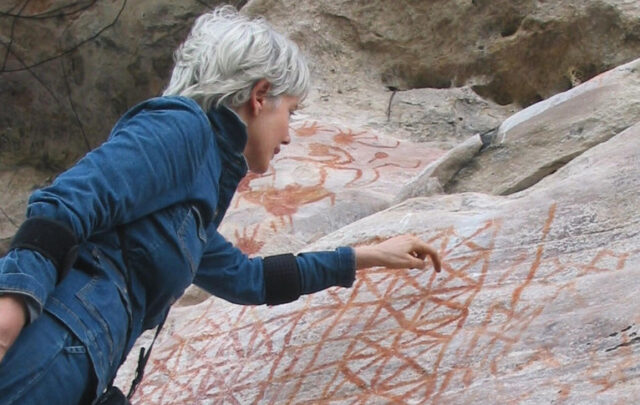Keynote speeches from the Secretary of State for the Environment, Food and Rural Affairs, Michael Gove and NFU President Minette Batters laid out their visions for the future of farming in the UK and what changes are needed. For many in the room, Michael Gove’s comments were warmly welcomed. Placing health at the forefront of his agenda, he recognised that human health is integrally linked to how food is produced and so the health of the environment is of equal importance – “there need not be a tension between growing healthy food and securing a healthy environment,” he asserted. The sustainability of the UK food system was placed front and centre and extended to include the need to sustain rural communities and culture. In 20 years’ time, he wants the UK to be a leader in sustainable food production, championing high animal welfare, healthy soil, increased wildlife on farms and less waste – it is a hopeful vision of change and renewal.
Crediting the Secretary of State for his good work, Minette Batters opened her keynote by saying that it is great to be working with a politician who can finally put “the importance of farming, the environment and food production very firmly on the political map”. Minette went on to trace the past twenty years of British farming, arguing that we are in fact starting Brexit with solid foundations, having halved our use of pesticides and inorganic fertiliser over the past twenty years, and with the growth of assurance schemes such as Red Tractor and LEAF to underpin our development. She explained her vision for a future of active farming businesses that are “sustainable, profitable and progressive”, delivering for all incomes. She welcomed the Secretary of State’s plan to enhance the reputation of the UK food system at home and abroad, stating that, “We’ve never needed a bigger bolder plan for food production than we do today.”
Joel Salatin gave a lively overview of the marvel that is Polyface Farm, discussing its evolution and development which is driven by a determination to always think outside of the box. His unorthodox thinking in the face of American industrial farming allowed him to reinvent the mixed family farm as something vibrant and modern, not dragging on its knees. His entrepreneurial flair seeks company and he has offered a wide array of young people opportunities to incubate their ideas for small businesses to work within the farm. After his illuminating talk, he moved on to a careful dissection of Minette Batters keynote talk, contesting many points, but particularly that nitrogen fertiliser out of a bag is definitively not the same as that which comes from the back end of a cow.
Beyond the keynote talks, the panel discussions provided more focused scrutiny of the issues at hand. Measuring and valuing sustainability is a critical part of making the food system sustainable, but without a robust and coherent method for doing this, ‘sustainability’ will remain a vague term. Dieter Helm spoke of the work done by the Natural Capital Committee and argued hard for the introduction of ‘polluter pays’ measures, pointing out that new technologies will allow us to pinpoint precisely where pollution is being generated. Edward Parsons spoke of the work being done at the Waddesdon Estate as part of the SFT’s Sustainability Metrics project, whilst Helen Browning of the Soil Association discussed the need for a new outcomes framework for measuring sustainability which would enable farmers to benchmark their efforts in comparison to others. She also told some cautionary tales, explaining that there is a lot of work to do in order to build the data sets required for an outcomes framework. Finally, Andrew Sells, Chairman of Natural England, called for “radical thinking” in the way we farm, but in view of the natural capital concept, cautioned that we should not over-emphasise our focus on assets that can be easily valued, such as rivers and catchments, stating that there are other, less easily valuable assets that need equal consideration. “We have a moral duty to…save the species with which we share the planet,” he argued.
Joel Williams, who travels widely around the world lecturing and running seminars on soil health, began by noting that soil is having a moment – one that could reawaken farming to its profound value. With the New York Times Magazine asking ‘Can dirt save the earth?’ on a recent cover, the importance of regenerating our soils has been pressed into the foreground of thinking on the future of farming. Joel’s insightful commentary on his work with soil was a starting point for the more practical presentations by Hylton Murray-Philipson and Rob Havard. The importance of grazing livestock in restoring soil health was illustrated in discussions of their management practices.
The final panels on the imperative importance of small abattoirs in preserving access to local meat and relocalising our food system rounded off the conference. In response to the SFT’s report, A Good Life and A Good Death: Relocalising Farm Animal Slaughter, highlighting the catastrophic decline in small abattoirs across the UK, an expert panel discussed the reasons why the sector is challenged – from the high costs of waste disposal and excessive regulation to the low prices paid to small abattoirs for hides and skins and the planning hurdles faced by those seeking to establish new small abattoirs.
As Bob Kennard, co-author of the SFT report, said, “We don’t just need a new approach to agricultural policy, we also need a new approach to the regulation of small abattoirs and we need action urgently, otherwise there will be no small abattoirs left in many regions. Three more red meat abattoirs have already closed this year and at least another three are considering closure. This is our last chance, we’ve got to make it sustainable and long term.”
The closing panel looked at a range of projects that are working to support local producers and local food systems, including Farmdrop, Primal Meats and the Buccleuch Estate. Darina Allen of the Ballymaloe Cookery School, one of the original farm to fork enterprises, gave a delightful run through of its evolution, discussing her original vision for it and how it was realised.
The conference also included a farm walk led by Paddy Hoare, land manager at Fir Farm and Guy Hayward of the British Pilgrimage Trust. The walk journeyed three miles from the source of the River Dickler through various neighbouring farms and ending at Fir Farm itself. Walkers were given the opportunity to explore parts of the working 700 acre mixed farm, which implements sustainable practices and supplies local markets wherever possible in the Cotswolds, near Stow on the Wold. The farm is home to 200 head of pedigree polled Hereford cattle, 250 acres of arable and 90 acres of conservation area and woodland.
Sir Alan and Lady Parker who sponsored the conference provided, “awesome food and hospitality” in the words of food writer Lynda Brown. Held in a beautifully renovated pole barn with an arced tin roof, it provided an ideal setting, surrounded by the rolling fields of the farm. Farmer Catherine Broomfield was full of praise, commenting, “I can honestly say that [the] conference was the most thought-provoking and enjoyable I have probably ever attended and definitely the best value for money which is a clue as to why [the SFT] succeeded in filling seats with real farmers and not row upon row of policy wonks.”
Films of the talks will be published over the next couple of weeks.
Photograph: Chloe Edwards





